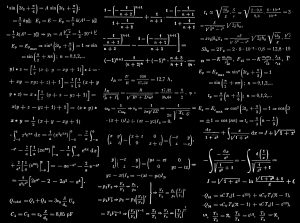Junior Module: Introducing Young Minds to Abacus Learning

Do you wish there was a way to make numbers less intimidating and more enjoyable for your child? Look no further. The abacus junior module is here to unlock your child’s mathematical potential and introduce them to a world of exciting possibilities. In this article, we will explore the benefits and structure of the abacus junior module, designed specifically for children aged 6 to 8 years. Let’s dive into this adventure of introducing young minds to numbers.
Introducing Abacus to Children: The Abacus Junior Module
The abacus junior module is specifically designed to introduce young children to the world of abacus learning. It is targeted at children between the ages of 6 and 8. This course focuses on developing foundational skills in mathematics while also enhancing cognitive abilities and confidence.
-
Age-Appropriate Curriculum
The curriculum of the abacus junior module is carefully structured to meet the needs and abilities of young children. By starting with fundamental concepts, children will fall in love with learning.
-
A Basic Understanding of the Abacus
The course begins by introducing children to the basic principles and functions of the abacus. They learn how to manipulate the beads and perform simple calculations using this ancient tool.
-
Improved Attention Span and Concentration
The interactive nature of abacus learning helps children improve their focus and concentration. As they engage with the beads and solve mathematical problems, their attention span increases, leading to better overall concentration.
-
Enhanced Coordination between the Left and Right Sides of the Brain
Research has shown that using an abacus activates both the left and right sides of the brain. This bilateral coordination enhances cognitive abilities and improves problem-solving skills.
-
Better Motor Skills
Manipulating the beads on an abacus requires precise hand-eye coordination and fine motor skills. Regular practice with the abacus helps children develop these skills, which can benefit them in various other activities as well.
-
Multiplication Tables
Children will also learn multiplication tables from 2 to 9. This not only improves their mental math abilities but also lays a strong foundation for future mathematical concepts.
Engaging Learning Environment
The abacus junior module aims to make math enjoyable for young children. The program utilizes interactive methods and engaging activities to alleviate any fears associated with numbers. By creating a positive and supportive learning environment, children can develop a love for mathematics and build confidence in their abilities.
Progressive Learning Path
The abacus junior module serves as a foundation for further courses offered by abacus learning programs. As children progress through the modules, they can continue to build on their skills and expand their mathematical knowledge. This progressive learning path ensures a systematic and structured approach to their mathematical development.
Small Class Sizes
To ensure personalized attention and support, classes in the abacus junior module are limited to 6-8 students. This small class size allows instructors to focus on each child’s individual needs and provide guidance accordingly. The personalized approach helps children feel valued and supported throughout their learning journey.
Benefits of the Abacus Junior Module
Now that we have explored the structure and key features of the abacus junior module, let’s take a closer look at the benefits it offers to young learners:
-
Increased Confidence: By overcoming the fear of numbers and experiencing success in calculations, children gain self-esteem and develop a positive attitude towards math. The abacus junior module provides a supportive environment that nurtures children’s confidence and belief in their abilities.
-
Cognitive Enhancement: Research has shown that abacus learning promotes mental agility and improves problem-solving skills. By engaging with the abacus, children develop critical thinking abilities, logical reasoning, and overall intelligence.
-
Structured Learning: The systematic approach of the abacus junior module helps children develop disciplined learning habits. They learn to follow instructions, solve problems step by step, and organize their thoughts effectively. These skills are beneficial not only in mathematics but also in other areas of their academic journey.
-
Fun and Interactive: The abacus junior module is designed to make learning fun and engaging for young children. Through games, activities, and hands-on experiences with the abacus, children develop a positive association with math and feel excited about exploring new concepts.
The abacus junior module is an effective way to introduce young learners to the world of mathematics through engaging and structured training. By focusing on skill development and cognitive enhancement, this course prepares children for future academic success while fostering a love for mathematics. With increased confidence, improved problem-solving abilities, and a disciplined approach to learning, children can unlock their full potential in both math and other areas of their lives.
In conclusion, the abacus junior module is an excellent opportunity for parents to introduce their young children to the world of abacus learning. This course offers age-appropriate curriculum, skill development opportunities, an engaging learning environment, and a progressive learning path. Through the abacus junior module, children can develop essential mathematical skills while enhancing their cognitive abilities and confidence. So why wait? Embrace the world of abacus learning and set your child on a path to mathematical success!



